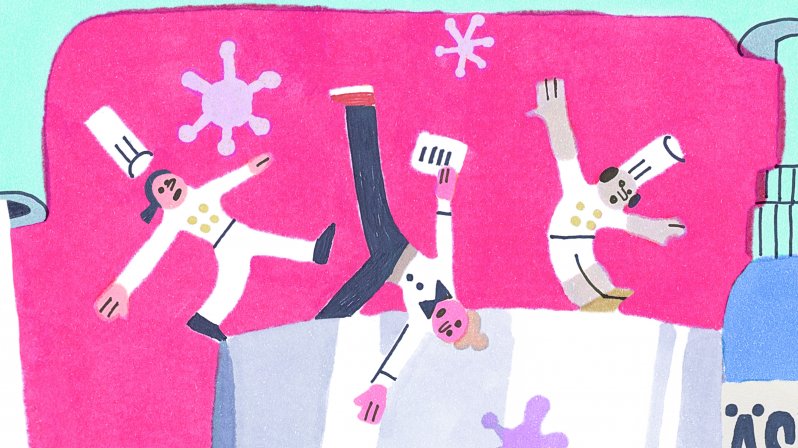Life on a knife-edge
For a year now, workers in the restaurant sector have been living on a knife-edge in the shadow of coronavirus. Will my money last or not, will I get through next month or not? Read how workers described the year in their own words in PAM´s survey.
"Over the last year I have been laid off for long periods during which the financial situation has been really challenging. Long processing periods at the unemployment fund have made the situation even more difficult. I have had to give up my hobbies. I have had to borrow money and reschedule payments. I’ve also had to cut down on family expenses, for example clothes purchases. I’m constantly living "on a knife-edge"..."
"The coronavirus crisis has made it difficult to live life. Laid-off and unemployed. I’ve had to give up all sorts of things. I often wonder if I’ll die of hunger or coronavirus."
"My income, which was low anyway, has dropped considerably. My home loan was on hold for half a year but now I’ll have to start paying it off again in full and work has totally dried up again now that everywhere has been closed. "
"20% drop in wages, change in job description, partial lay-off. Training and work experience get you nowhere. Only money counts. This leaves me with a deep distrust of my employer. Now I have been knocked down, how can I build up any self-respect anymore? On top of it all there’s age racism."
"I systematically have to count every penny I spend. I’m living on union money, but it’s not enough unless I ration daily expenditure."
Money for day-to-day expenses from many sources
The coronavirus misery in the restaurant sector that started a year ago has seriously impacted workers’ livelihoods.
In early March, PAM asked members working in the hospitality sector how the coronavirus crisis had impacted their livelihoods.
Over 3,000 professionals in the sector responded to the survey. Almost half of them described their situation in their own words in the comments section.
At the time of responding, 32 per cent were laid-off and 15 per cent unemployed. One in four respondents were working but at risk of lay-off or redundancy.
As a result of coronavirus respondents have had to cut down on items including food (64%) and clothes purchases (63%). Comparing these results with the situation in August, it emerges that a larger share of hospitality sector workers than before have had to cut down on everyday expenses to make ends meet.
The low-paid have little room for manoeuvre in their finances even in normal times. Now that their employment earnings have dropped or come to a complete stop, they have looked to different sources to cover their everyday expenses.
Just over half of respondents (55%) have had to dip into savings built up earlier. This share has increased since the August survey. The second most common way (37%) to make up for lost income has been to resort to financial support from family members.
PAM’s 3 proposals to ease the difficulties
- Temporarily increase earnings-related unemployment security. This would alleviate the situation for workers until they can return to their jobs.
- Temporarily waive the waiting period for unemployment security.
- Prepare a wage subsidy scheme for companies to make sure employment relationships can continue after the restrictions have been lifted.



